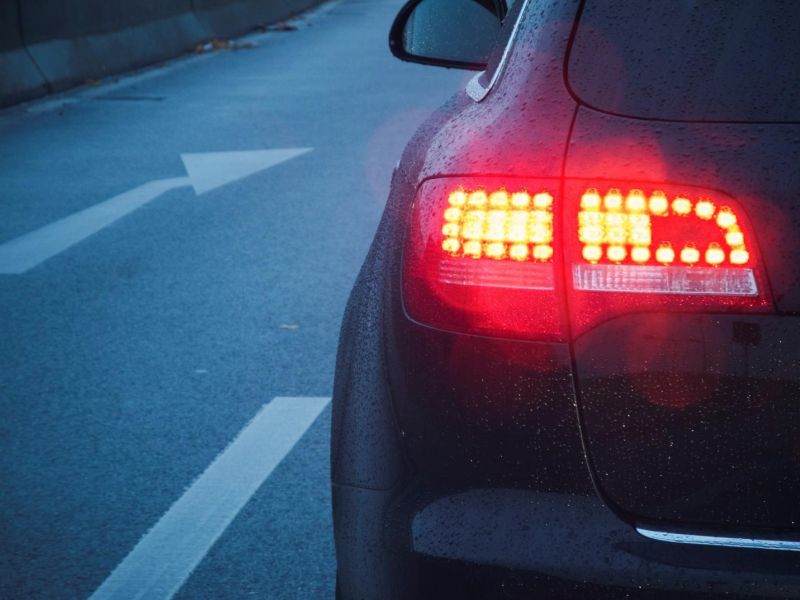
— Miscellaneous Traffic Offenses, Reckless Driving
Is Brake Checking Illegal
You are in heavy traffic on a Virginia roadway. You notice the person behind you is following way too closely. After you come to a stop at a light or wait for a turning driver in front of you, you notice the vehicle getting even closer to the point where you worry about the driver crashing into you. You want the other driver to give you some space, so you start to tap on your brakes. But is this behavior legal? If you would like more information about brake checking or were involved in a brake checking accident in Virginia and are being blamed for the crash, consider contacting Driving Defense Law by calling (757) 929-0335 to learn more during a confidential consultation.
What Is Brake Checking?
Brake checking is the practice of rapidly applying brakes, usually to communicate that the vehicle behind the person brake checking is following too closely. Brake checking typically involves slamming your brakes, rather than lightly tapping them. What is essential about brake checking is that the brakes are applied not for the purpose of stopping or slowing down but instead to get the rear driver to respond in a certain way.
Brake checking is an act that seeks to change another driver’s behavior. However, there is no guarantee that brake checking will yield the desired results. The tailgating driver may simply get annoyed and continue to follow too closely to spite the brake checking driver. The driver may get upset and even violent. Brake checking can also cause collisions because the tailgating driver does not have enough time to stop due to the sudden braking.
What Is the Point of Brake Checking?
People sometimes engage in brake checking to communicate to the driver behind them that they are too close for comfort. They hope that by slamming on their brakes, the driver behind them will also have to slam on their brakes to avoid a crash and will pay more attention and create more distance.
The front driver may believe that if they brake check the tailgater and the tailgater crashes into them, the tailgater will be found at fault. However, this may not be the case because the driver in front has created an unnecessary hazard by braking for no apparent reason other than to provoke the driver behind them.
Dangers of Brake Checking
Brake checking can be an extremely dangerous driving tactic. When a driver brake-checks, the vehicle behind them may also have to brake hard or swerve to avoid a crash. Taking those actions may result in the rear driver hitting another driver, pedestrian, or property. Additionally, brake checking increases the likelihood that the rear driver will crash into the vehicle in front of them because they will not have enough braking distance to stop before a collision occurs.
In addition to potentially causing a crash, brake checking can lead to serious injuries or even death. The accident victim could potentially sue the brake checker for the injuries they suffered. Brake checking can also result in criminal charges being lodged against the offender.
Is It Okay To Brake Check a Tailgater?
No. While having someone tailgate you can be frustrating, as explained above, brake checking can be extremely dangerous and lead to a crash.
Rather than brake checking, here are some strategies to help you deal with tailgaters:
- Give tailgaters the option to pass.
- Create more distance between you and the tailgating driver.
- Change lanes.
- Use your turn signals to indicate you are turning or changing lanes.
- Pull over somewhere safe if you feel you are in danger.
- Report dangerous driving activities to local law enforcement.
Is Brake Checking Illegal?
Yes. While there is no specific Virginia brake checking law, brake checking may be considered a form of reckless driving. Brake checking can create a dangerous situation for other motorists and is often considered a form of aggressive driving or road rage. A lawyer from Driving Defense Law may be able to help defend you if you are facing charges for reckless driving or other traffic violations.
Virginia Tailgating and Brake Checking Laws
First, it is important to note that tailgating is illegal in Virginia. The Code of Virginia § 46.2-816 states that drivers should not follow other vehicles “more closely than is reasonable and prudent,” while considering the speeds of both vehicles and current traffic conditions. However, just because another driver is breaking the law, that does not give you the right to break the law, too. Brake checking could be a form of reckless driving under , which defines the offense as driving a vehicle recklessly, in a manner, or at a speed, that would endanger the life, limb, or property of others on any highway.
In addition to this general rule, motorists could be subject to penalties under the Code of Virginia § 46.2-852, which addresses reckless or improper driving, if they do any of the following:
- Drive a vehicle not under control
- Drive a vehicle with inadequate or improperly adjusted brakes
- Drive a vehicle while their control is impaired
- Drive with an obstructed view
- Drive 20 mph or more above the speed limit
- Drive too fast for highway and traffic conditions
- Pass two vehicles at the same time
- Pass at a railroad crossing
- Pass a stopped school bus
- Pass a vehicle on or at the crest of a grade or curve
- Fail to give proper signals when turning, slowing down, or stopping
- Fail to yield the right-of-way when entering a highway from a side road
- Fail to reduce speed when approaching a stationary vehicle that has a flashing or warning light
- Race on a highway in the Commonwealth or driveway at a church, school, business, or recreational property
- Stop on a highway
Committing some of these offenses is considered aggressive driving under Virginia law when the act was done “with the intent to harass, intimidate, injure, or obstruct another person.” Reckless driving is a Class 1 misdemeanor according to , punishable by a jail term of up to 12 months and a fine up to $2,500.
Do You Need Assistance from a Traffic Defense Lawyer for Brake Checking?
If you are facing a traffic ticket due to brake checking, a traffic defense lawyer with Driving Defense Law may be able to help. Learn more by calling (757) 929-0335 today to schedule your free personalized case evaluation.

